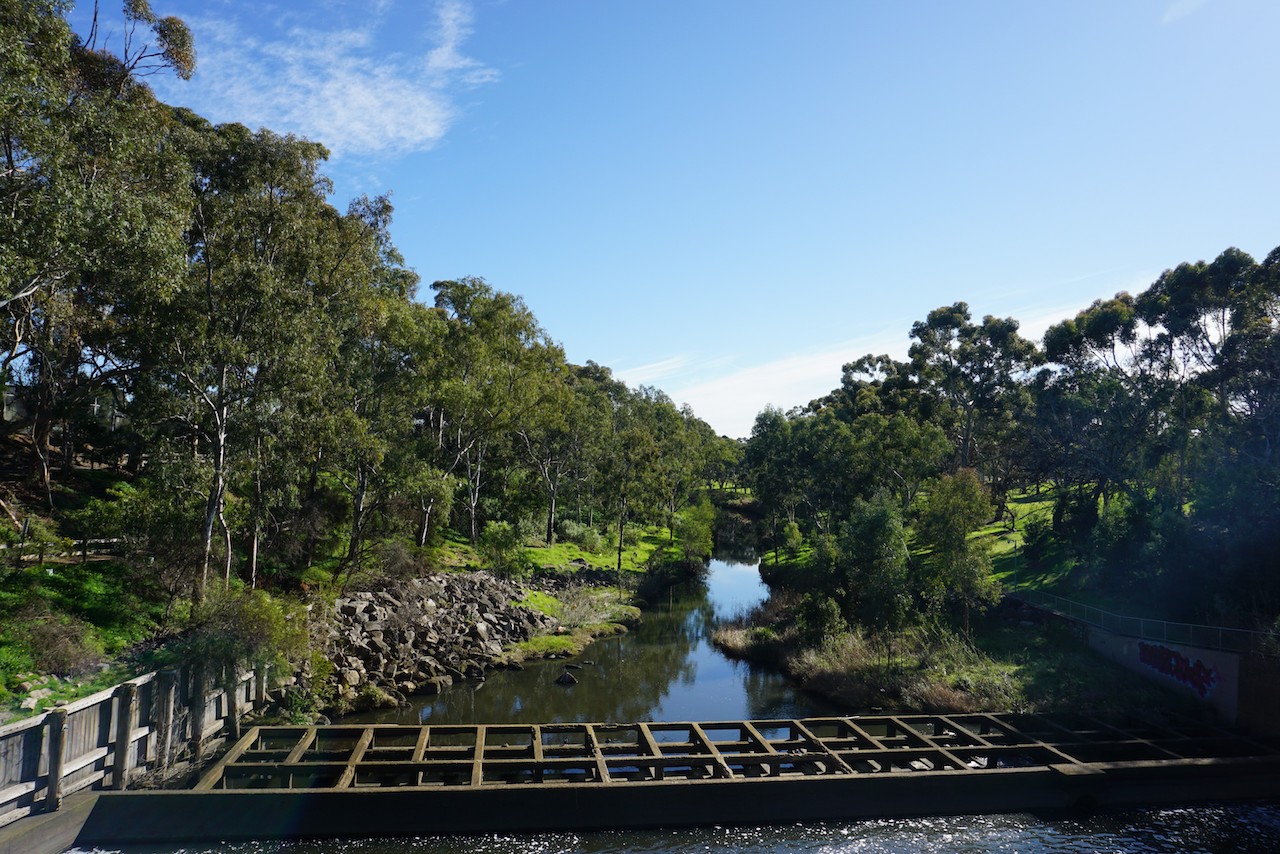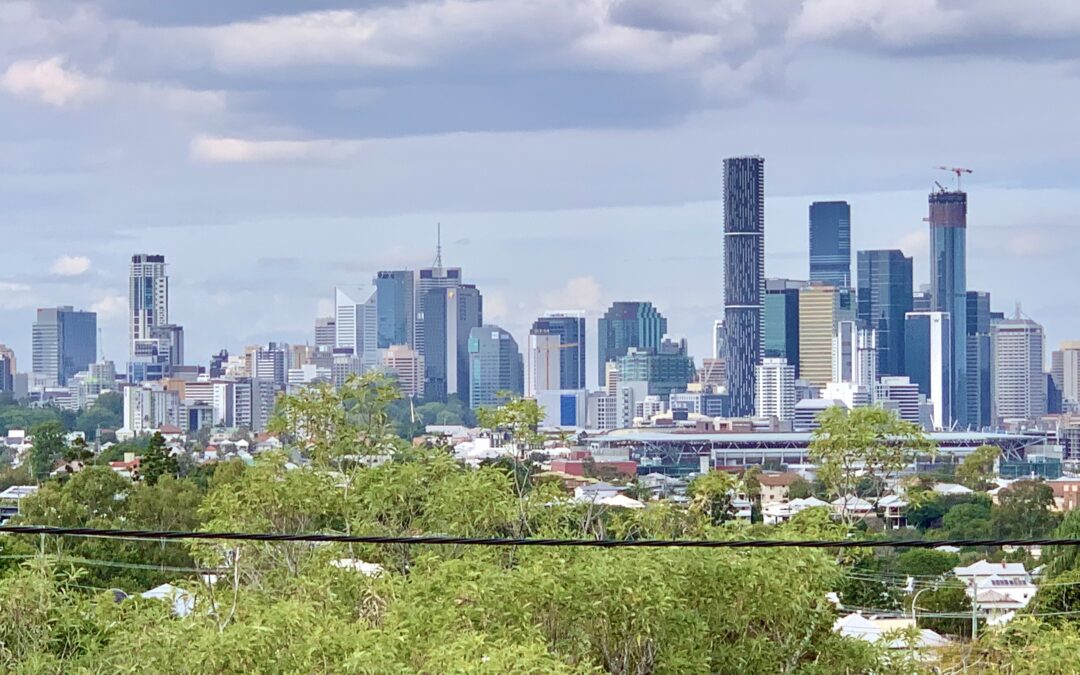Between the dates of the October 6-8 2023, Brisbane, Australia became home of the Australian Physiotherapy Association’s national conference, IGNITE 2023. I was fortunate enough to attend this conference and was excited and inspired by the keynote presentation titled, “Climate change, biodiversity loss and physiotherapy: improving planetary and patient health”. This keynote address was given by three extremely knowledgeable speakers: Professor Kathryn Bowen, from The University of Melbourne, who has over 20 years of experience in public health, Dr Jessica Stanhope, a physiotherapy academic and highly skilled researcher at The University of Adelaide and lead of the Environmental Allied Health Group, and Professor Gillian Webb, a physiotherapy academic from The University of Melbourne who has been involved in physiotherapy education for many years.
As I was eagerly waiting for the presentation to begin, I was listening to members of the audience discuss how this presentation was probably the most important and necessary presentation of the entire conference, and I would have to agree. The issues the speakers discussed are of vital importance, not only for physiotherapists but for all health professions. This importance was not lost on the presenters, who repeatedly stressed the need to educate future generations of these issues and encourage them to become advocates for change.

Amanda Maddern (BPhysio)
Associate Lecturer in Physiotherapy, The University of Adelaide
Amanda Maddern’s PhD research revolves around exploring the potential impact of nature exposure on outcomes related to chronic lower respiratory diseases.
Climate change and health
Professor Kathryn Bowen was first to address the crowd. Her presentation was a “big picture” perspective on how climate change can impact human health. She began by discussing the most recent report by the Intergovernmental Panel on Climate Change and how changes in climate can influence human health. Increasing temperature, rising sea levels and extreme weather events such as fire and floods, can directly and indirectly influence health. Direct factors include things such as drowning in a flood, and indirect factors include the impact these events could have on mental health. The report stated with very high confidence, climate change will result in increases in malnutrition due to changes in food production and access to fresh water, higher transmission of infectious diseases due to increases in humidity and poorer mental health and wellbeing. However, Professor Bowen went on to state, climate change and poor health outcomes are not directly related. Mediating factors such as baseline air and water quality, access to healthcare and a functioning healthcare system will all impact how severely people feel the effects of climate change.
Unfortunately, although the health impacts are interconnected, they are unevenly distributed, with those from poorer economies often feeling the effects the most. These countries are usually more dependent on climate-sensitive livelihoods, such as farming, have more poverty and less access to quality healthcare. However, Professor Bowen ended her presentation on a positive note, discussing the strategies that have been put in place by the Intergovernmental Panel on Climate Change. One strategy included conducting climate vulnerability, capacity and adaptation assessments to determine the ability of a country to respond to catastrophic weather events, such as flooding. Professor Bowen concluded her presentation by highlighting while there has been an increase in donors supporting these vital efforts, progress remains variable globally and more advocacy is required is this area.

Flooding in 2011 at South Bank in Brisbane (not far from where the conference was held). Allan Henderson, CC BY 2.0, via Wikimedia Commons
Biodiversity loss, health and physiotherapy
Dr Jessica Stanhope followed with her presentation on the importance of having access to biodiverse environments for human health and the impact that urbanisation is having on our ability to access natural spaces. Dr Stanhope stated that biodiverse environments offer humans provisioning services (food), regulating services (protection from pollution and pathogens), cultural services (spiritual connection to the land or opportunity for recreation/sport) and supporting services (photosynthesis/cell formation etc). Without these services human health suffers greatly and we need to be in close proximity to highly biodiverse areas to receive these services.
Dr Stanhope went on to discuss a fascinating pre-clinical trial she has recently conducted. In this trial mice were exposed to three different aerobiomes, created through fanning soil throughout their cages. The aerobiomes consisted of no soil (simulating growing up in an indoor environment), low diversity soil (e.g. a football oval) and high diversity soil (e.g. an urban forest). The mice were exposed to the differing aerobiomes for a period of 7 weeks and the sciatic nerve was damaged during that time. Dr Stanhope reported pre-injury thresholds of mice were different between the groups and by day 3 post injury, the mice exposed to a highly diverse aerobiome had returned to their pre-injury threshold, whereas the low and no groups continued to decline. These findings could be revolutionary for physiotherapists and the health professions, and greatly influence how we treat pain in the future. Dr Stanhope concluded her discussion by acknowledging the limited research in this area, while also stressing the need to advocate to reduce land clearing and increase access to biodiverse environments, as well as the need to encourage our patients to access these spaces.

Adelaide Parklands. Credit: Jessica Stanhope
Sustainability, physiotherapy, and training the next generation
The final speaker of the session, Professor Gillian Webb, discussed progress on the Sustainable Development Goals. The key point of these Goals is sustainable development through addressing poverty and disparity. The Goals include but not limited to economic prosperity, social inclusion, peace, environmental stability and health. Professor Webb, highlighted the interconnectedness of all of the goals, and the complex nature of achieving them. Unfortunately, there has not been as much progress in this area as hoped by 2023. The key takeaway from the presentation by Professor Webb was the importance of including these issues in the current physiotherapy curricula. Providing students with the education and resources they need to advocate and as act agents of change with such a challenging and complex topic.
We need to act
On the conclusion of the address, I would have to agree with my colleagues. This keynote was by far one of the most important of the conference. There is such a vital need for physiotherapists and the healthcare profession as a whole, to advocate for change as it relates to climate change. We are in the most important decade to prepare for climate change and we mustn’t allow the opportunity to reduce these challenges pass us by.
Photo credit for header: Brisbane city, Kgbo, CC BY-SA 4.0, via Wikimedia Commons


Thank you for your great summary of the #IGNITE2023. This session was initially planned for the Australian Physiotherapy Association (APA) #THRIVE2021 conference, for which I was tasked to seek inspirational speakers – unfortunately it was cancelled due to COVID-19 pandemic. However the APA continued to demonstrate its interest in climate action and sustainability – https://australian.physio/media/apa-joins-climate-and-health-alliance-pursuit-better-health-future-generations. There are many physiotherapists who champion sustainability in healthcare as seen here – https://australian.physio/inmotion/question-climate and here -https://australian.physio/inmotion/5-facts-about-physiotherapy-and-climate-change and research is increasing in this area eg. https://onlinelibrary.wiley.com/doi/full/10.1002/pri.2085 but there is so much more physiotherapists can do. Keep raising our profile Amanda 🙂